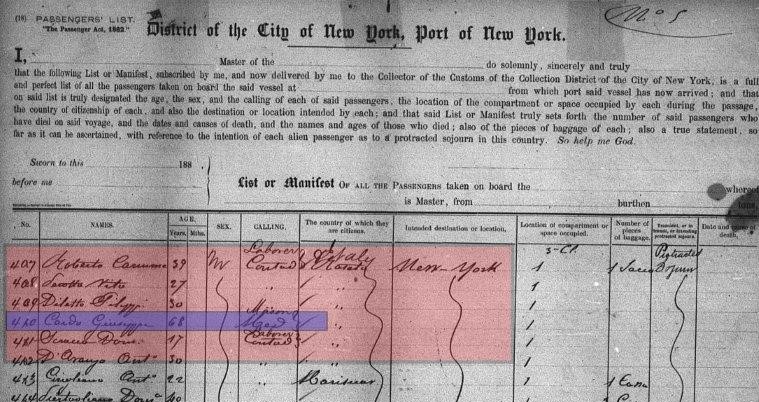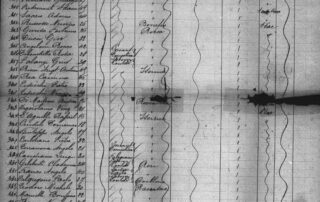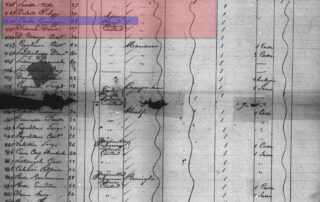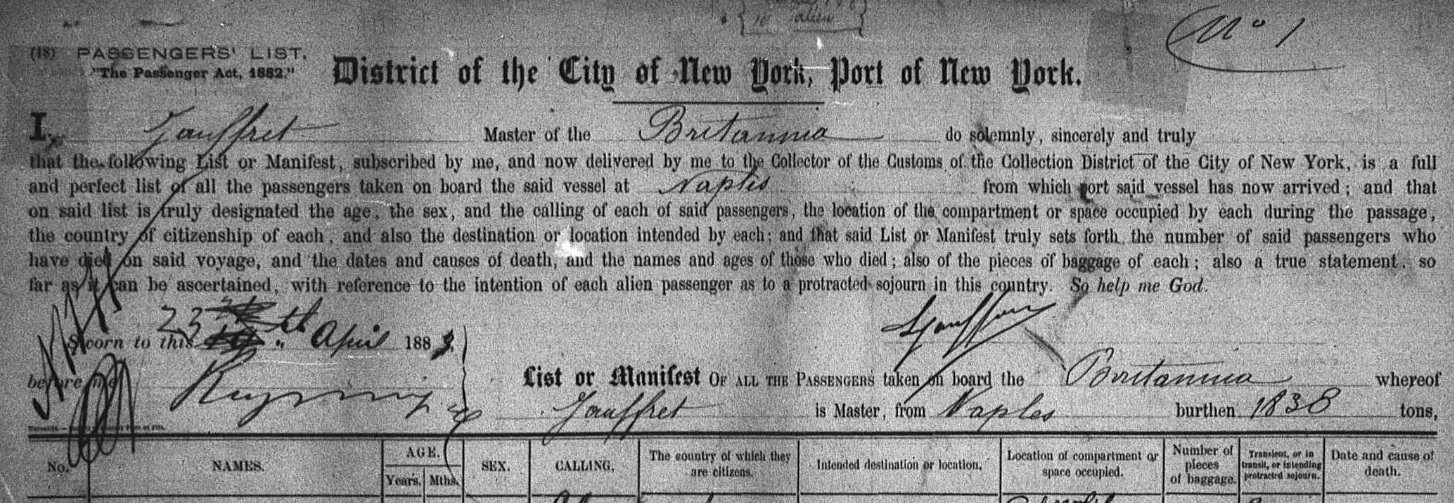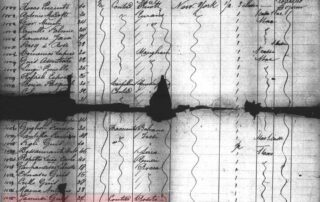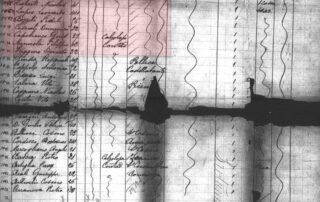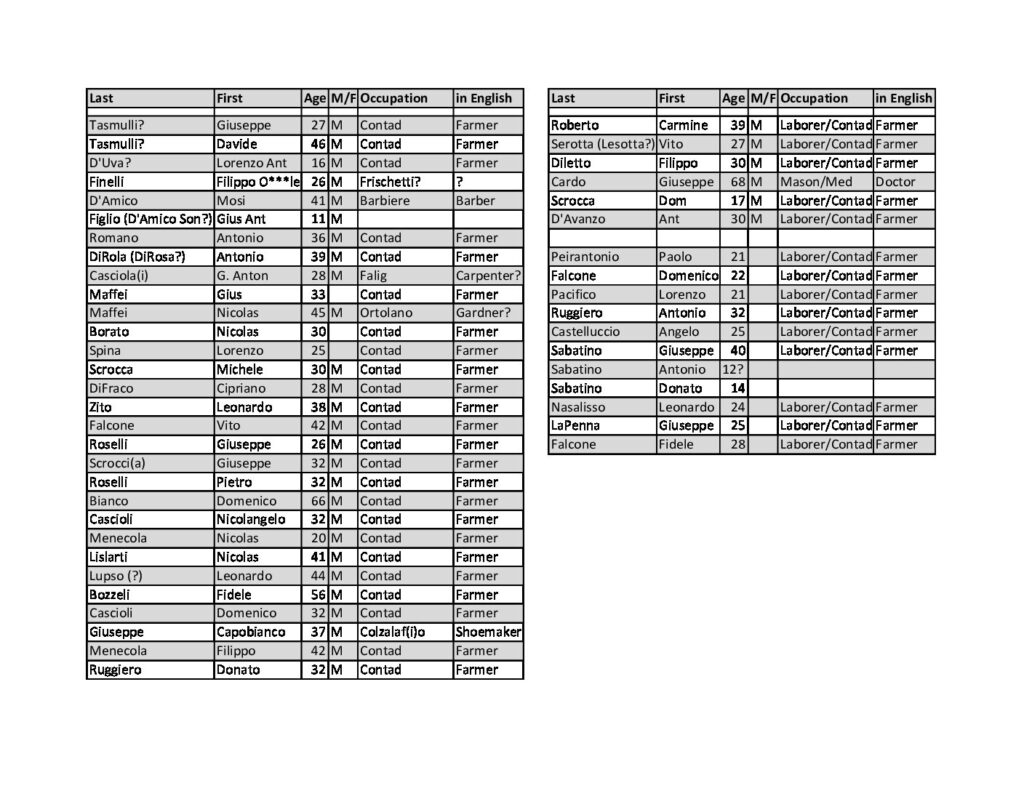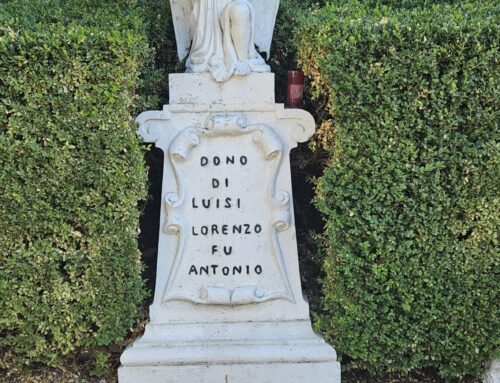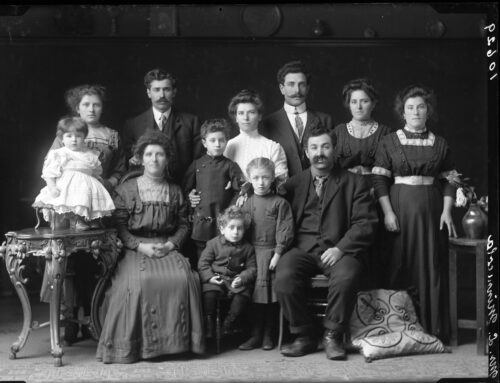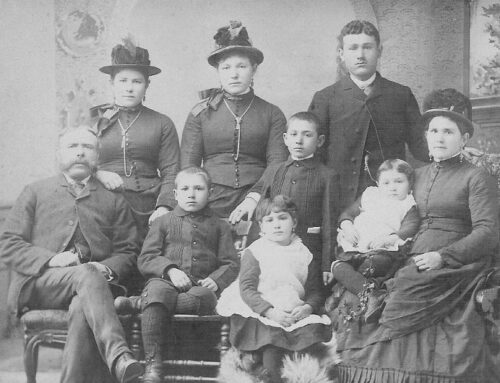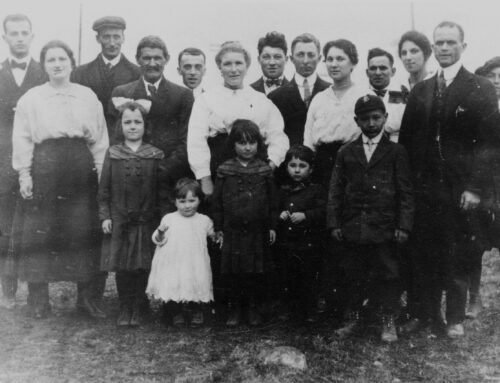Giuseppe Cardo was a medical doctor in Roseto Valfortore, Italy. He also served as the head of the Rosetan National Guard. In 1883 he led the second group to emigrate from Roseto to North America. He also sponsored some of that group by loaning travel money to those who didn’t have the means to pay for their own passage to America.
Giuseppe Cardo was born about 1815. Birth records for his children indicate that he and his wife Anna Maria Suamoreto (or Summonti) had at least 3 children: Giulia, 1848, Romeo, 1854 and Sofia, 1856 all born in Roseto Valfortore, Foggia, Italy.
Starting in 1848 a series of revolts began against the ruling Bourbons that would eventually lead to the unification of Italy by 1871. According to an account written in 1971 by Roseto Valfortore historian A. Facchiano, Dr. Cardo was apparently regarded as a great Italian patriot for his actions in support of the 1848 revolt. He must have played a major role in this early battle for Italian independence although no specifics are given.
By 1860 the uncertain political climate and lack of order allowed bandits and crime to become a serious problem in the area. In November of 1860 150 Garabaldian rebels arrived in Roseto and it was hoped they would put an end to the banditry and restore order. Instead they committed various crimes against the people including looting and demanding a loan of 5035 ducats from the town. They went as far as executing six men who were loyal to the now deposed Bourbons.
The Garabaldians soon left Roseto Valfotore, as they continued their fight for independence and it was left to the Rosetan National Guard to restore order. Under the leadership of Dr. Cardo they were successful and their bravery earned high praise from Roseto mayor Michele Sabetti
Italian unification did little to improve the widespread poverty prevalent in Roseto and much of southern Italy. This, more than anything leads to a wave of emigration beginning with 11 men leaving Roseto for America in January of 1882. By March of 1883 a second larger group is preparing to leave Roseto and Dr. Cardo generously agrees to sponsor a number of the needy peasants in the group who had the will but not the resources to make the trip.
In her book “The Policelli Family of Roseto”, Martha Policelli Livingston writes “In … 1883 in Roseto, Italy, a wealthy doctor, Giuseppe Cardo sponsored the second group to come to America. They were Nicola Rosato; Lorenzo Pacifico; Angelo Maria Castellucci,; Domenico Stefano Ruggiero; Nicola Menicola; Nicola Falcone, son of the late Filippantonio; Nicola Cacciacarro, son of Stefano; Nicolangelo D’Uva and Lorenzo D’Uva. (This account was written in the “Stella di Roseto”, September 18, 1931, by Dr. Giancomo Cascioli ) They left Naples in March of 1883, on the Anchor Lines’ steamer Britannia and arrive in New York on April 7. (Note: Should read April 23rd). They were hired by a railroad company and in May, were sent to Indian Springs, near Peterboro. After a short six months, the group disbanded and scattered. Some of them joined the group in Bangor.” Note that one of the group is Nicola Menecola, older brother of my great grandfather Donato Menecola. There is no mention made of his father, my great grandfather Filippo who was listed in the ship manifest. Perhaps only those sponsored by Dr. Cardo were mentioned and the others managed to cover their own expenses.
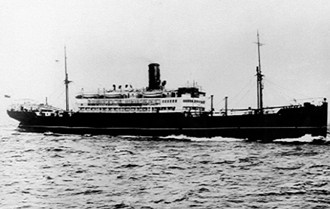
Anchor Lines steamer Britannia.
Another source relays the following: “..Giusseppe Cardo, a wealthy physician in his seventies.. declared jokingly that the trip (to America) would rejuvenate him, Dr. Cardo sailed for American in 1883 with a group of fifteen needy peasants to whom he loaned the travel money. Dr. Cardo secured employment for them as laborers in Amsterdam, New York. After two months there, and an additional six working on the railroad at Indian Springs, near Peterborough, Ontario, winter came, their jobs ended, and the group disbanded. They failed to repay Dr. Cardo who returned to Italy feeling deserted and embittered.”
Detail from port record of the Britannia arriving from Naples, April 23rd, 1883. Note: Dr. Cardo highlighted in purple with other passengers from Roseto Valfotore.
According to Roseto Valfortore historian A. Facchiano “Another 25-30 people leave in March 1883 led by Dr. Giuseppe Cardo, the patriot of 1848, who then returned to Roseto for the disgrace shown to him by these villagers.” Note that the translation may not be perfect but this verifies that Dr. Cardo returned to Reseto shortly after making the trip to America.
Further research shows there are actually 47 men from Roseto Valfortore listed on the Britannia passenger manifest arriving in New York city on April 23rd, 1883. Giuseppe Cardo is one of those listed, with his occupation ‘Med’ and his age listed as 68. Many of the surnames are well known in both Roseto, Italy and Roseto, PA: D’Uva, Finelli, Menecola, Scrocca, Falcone, Ruggiero, Pacifico, Castellucio, Cascioli, Sabatino, LaPenna, Capobianco, etc. Either nine, fifteen or possibly more were sponsored by Dr. Cardo who then returned to Italy afterward, likely in late 1883 or 1884. Beyond that point no further documentation has been found about Dr. Cardo in the records from Roseto Valfortore. It’s possible he was originally from a different area of Italy and may have left Roseto after returning from America. He was definitely an important figure in the history of both Roseto, Italy and Roseto, PA and deserves to be remembered.
Ship’s manifest – S.S. Britannia – arrived in New York City, April 23rd, 1883 from Naples. Passenger names from Roseto Valfortore highlighted. (Click for larger view) Text list of passengers from Roseto Valfortore below. Note: it’s possible some of the passengers may have been incorrectly listed as originating from Roseto.

